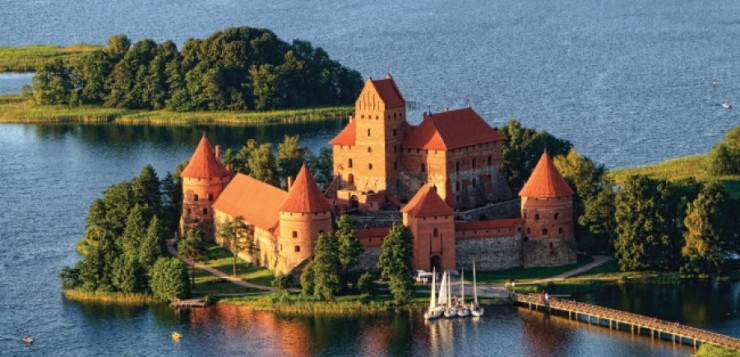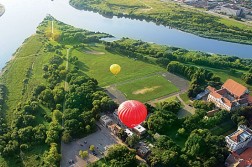Have you heard about Lithuania? It is not a country which gets world coverage all too often, but usually it is the good things that spread the word.
Did you know that laser technologies is one of the areas in which Lithuania is a world leader? Lithuanian picosecond lasers constitute half of the world’s market: Femtosecond parametric light amplifiers – as much as 80%. These and other fields of scientific research have helped Lithuania to attract foreign investment, and now it also helps to position Lithuania as a destination for higher education and research, especially in the fields of laser technologies, engineering, IT, and biomedicine.
Lithuania is a country a bit smaller than New Brunswick and bigger than Nova Scotia, with a population just shy of three million. It is located in the north-east quadrant of the European Union, right beside the other Baltic nations of Latvia and Estonia. Lithuania has long traditions of higher education with the oldest University in eastern and northern Europe being located in Vilnius. Currently, there are 23 Universities and 24 Colleges (professional higher education institutions) in Lithuania. Although the number of local students has decreased, due to demographic changes, by almost 25% from 2008 to 2013, there are 4,284 international students in Lithuania at the moment – double the amount there were in 2008, and 12% more than last year.
One of the most popular study programs in Lithuania is medical sciences, and, as many others, is priced competitively when compared with similar programs in Western universities. Forty-eight percent of foreign students enroll in Bachelor and 42% in Master degree studies, and almost 94% of foreign graduates agree that they would recommend studying in Lithuania to their friends!
Geographically, Lithuania is in the center of Europe. So once you are here, it is easy to travel around and a get a feel for different European countries. Students can also take part in the EU-wide Erasmus+ Programme, which enables all university students to study for a semester or two in another European country.
Lithuania is also a member of the Bologna process, which means that the requirements to gain a degree are the same as in the majority of EU countries, which eases the process of diploma recognition. There is but one difference how study programmes are organized in Lithuania from other EU countries: There are much more contact hours or face-to-face interaction with lecturers in Lithuania, as opposed to individual work. This helps students delve deep into the subject and have guidance at all times.
For more information about studying in Lithuania see www.studyinlithuania.lt, where you can find more than 300 programmes in which you can enroll, as well as information on how to get ready to come to Lithuania.
Contributed by:
Study in Lithuania
Studyinlithuania.lt





